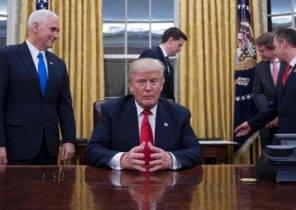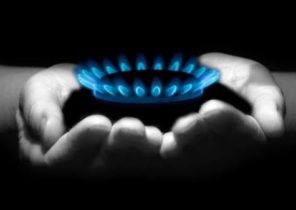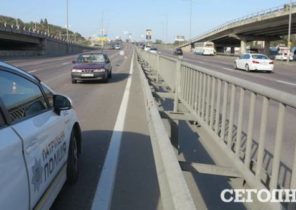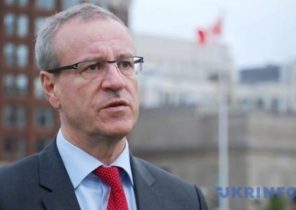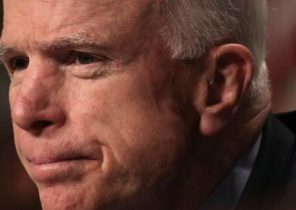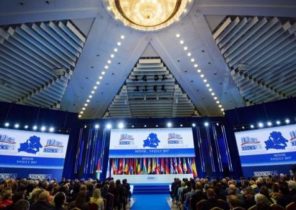
Yesterday, the Minister of foreign Affairs Mevlut Cavusoglu (Mevlüt Çavuşoğlu), said: “We are very close to the cease-fire throughout Syria.”
This statement raised expectations, and caused some issues.
For example, what force will have the agreement of Russia and Turkey, who support the regime and anti-government forces fighting each other in the civil war in Syria?
Or meeting in Kazakhstan under the organization of President Nursultan Nazarbayev, which was originally announced by the President of Russia, and then confirmed by President Tayyip Erdogan, canceled this truce?
On the other hand, Cavusoglu said that these contacts are not cancelled, noting that the Party “Democratic Union” will not participate in the Astana talks. Then what in Astana will say?
Where is the place of Iran in this picture? Or the United States, Saudi Arabia, UK?
The regime of Bashar al-Assad will accept it and perform?
In search of answers to these questions we see that we face not so much agreement, how much of a road map.
It consists of three stages, and if the first phase does not succeed, and the probability of implementation of other phases of weakening.
In the result of diplomatic efforts, which for more than a month continued between Turkey, Russia and Iran, and to a greater extent in Ankara, the next road map.
1. The cease-fire. Turkey and Russia are not parties, and “guarantors” of the process. Russia becomes the guarantor of the regime and forces fighting on the side of the regime, and Turkey is opposed to the regime forces, but this agreement does not cover “an-Nusra” and the Islamic state (banned terrorist organizations — approx. ed.) that all other parties are recognized as terrorist organizations. The aim is to extend the truce, which was able to provide during the evacuation of Aleppo, on the whole territory of Syria. If this can be done, then the hand “stands” where they are, stop the raids or artillery fire against each other, but the operation against “al-Nusra” and the Islamic state are beyond the scope of this agreement. (For example, the operation “Shield of the Euphrates”, the siege of El-Baba may continue)
2. Negotiations. If the truce will be able to provide directions, that is, forces loyal to the Damascus regime and the opposition will be invited to Astana. Russia, Turkey and Iran there will also be the guarantors of, and not parties to the negotiations, and, if necessary, as “intermediaries”. (As you know, the Pro-Iranian group is also fighting on the side of the regime in Syria.) Turkey advocates that the United Nations also attended the Astana negotiations as an observer and, if necessary, mediation.
3. Obligations. If the negotiations in Astana there will be progress, the results package that will be submitted as a “Supplement” and not “alternatives” in talks on Syria that are scheduled to continue in February in Geneva, under the supervision of the UN. Russia, Turkey and Iran promised to support the implementation of that agreement in practice. Thus, we expect to provide a permanent truce in Syria and the transition to the stage of “transitional government”.
This statement is not so complicated as it seems, isn’t it?
But this does not mean that everything is just as described.
There are serious difficulties.
For example, yesterday, Cavusoglu said that Ankara has not abandoned the idea that the new Syrian regime has no place for Assad.
However, in the hours that followed, the Agency Reuters, citing Russian officials said: three countries leaning towards the next election of Assad as President, was replaced by the “Syrian Alawi”.
It is known that Ankara has long been located to ensure that the transitional period in Syria proceeded with the participation of the Sunni, even from loyal to Assad of the Baath party, but who can take the opposition.
So now these issues are on the table, and things are moving.
The leader of the Republican people’s party (CHP) Kemal kılıçdaroğlu (Kemal Kılıçdaroğlu) told reporters in Ankara: “Soon al-Assad will shake hands.” Actually, that’s what the leader of the CHP said from the very beginning.
Like Assad, involved his people in such a catastrophe and became the most important protagonist of the civil war, from which grew such deprived of the peace of the whole world a terrorist organization like ISIL, “al-Nusra”, will take the remaining part of the Syrian people? This is a separate issue. But most will benefit if this war, which has put the entire region under the threat of destruction, as soon as possible will end.
Yesterday in our telephone conversation one senior official, who did not want to be called by his name, said: “these initiatives have arisen before. When in one of the previous attempts of the USA and Russia, without telling anyone, had agreed among themselves, and one morning announced the agreement on the “cessation of armed clashes”, we were one of the first countries to support the agreement, despite the fact that nothing was said. Because those are not things that should be offended and turn back to them. We hope that this time the truce will be able to provide, and we can move towards a sustainable solution.”
As reported by our source, in addition to the negotiations of Erdogan and Putin and Nazarbayev, held Cavusoglu contacts with the Russian foreign Minister Sergei Lavrov, U.S. Secretary of state John Kerry (John Kerry), Minister of foreign Affairs of Iran Javad Zarif (Cevad Zarif) and the UN special envoy for Syria Staffan de Mistura (Staffan de Mistura). News agencies reflected the information that Lavrov is also in constant contact with Kerry and de Mistura. In addition, embassies of the Turkish foreign Ministry is in constant contact with the most influential players in this process such as the USA, Saudi Arabia, UK, Qatar and others.
The next few days, it seems, will be of crucial importance from the point of view of the distribution of the armistice in Syria and whether this will lead to a sustainable political solution.
